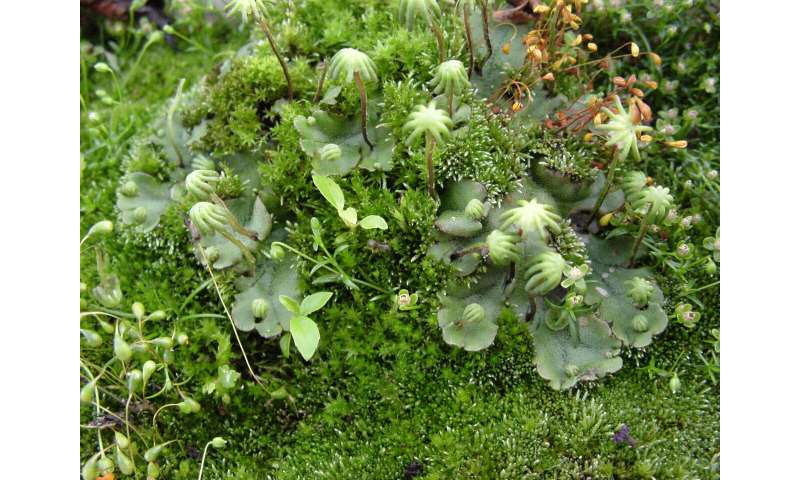#Common liverwort study has implications for crop manipulation

“#Common liverwort study has implications for crop manipulation”

A new study on genetic pathways in the common liverwort could have future implications for crop manipulation.
The findings of the US-led study, co-authored by genetic biologist Professor John Bowman from the Monash University School of Biological Sciences, are published today in Nature Plants.
Earlier this year researchers confirmed a new role for the well-known plant molecule known as 1-aminocyclopropane-1-carboxylic acid (ACC), providing the first clear example of it acting on its own as a likely plant hormone.
ACC is the precursor of the plant hormone ethylene which has many roles in growth and development.
“Ethylene was the first gaseous hormone identified over 100 years ago in flowering plants,” explains Professor Bowman.
“It is the ‘ripening hormone’, that is, the one bad apple spoils the lot,” he said.
“The ethylene signalling pathway has been characterised in flowering plants, and its disruption results in a number of defects, including fruit ripening.
However, land plants evolved from an aquatic alga, and genes encoding the ethylene signalling pathway can be found in extant algae, and were likely acquired from the cyanobacterial endosymbiont that evolved into the chloroplast, suggesting the pathway long predated the evolution of fruit ripening.
“Being able to understand and control ethylene production has major implications for agriculture and horticulture.”
Professor Bowman and collaborators investigated the ethylene signalling pathway in the liverwort Marchantia, and showed that while ethylene acted as a signalling molecule similar to the situation in flowering plants, the enzymatic precursor to ethylene in flowering plants, ACC, was a biologically active molecule as well.
“As liverworts do not make ethylene via ACC, it suggests that ACC was a biologically active molecule in the ancestral land plant, and that the ethylene pathway as we know it in flowering plants evolved via co-option of pre-existing pathways,” Professor Bowman said.
“These pathways likely still exist in flowering plants and may be able to be manipulated to affect ethylene signalling, and its incumbent biological processes in crop plants,” he said.
A molecular break for root growth
Dongdong Li et al, Ethylene-independent functions of the ethylene precursor ACC in Marchantia polymorpha, Nature Plants (2020). DOI: 10.1038/s41477-020-00784-y
Citation:
Common liverwort study has implications for crop manipulation (2020, October 26)
retrieved 26 October 2020
from https://phys.org/news/2020-10-common-liverwort-implications-crop.html
This document is subject to copyright. Apart from any fair dealing for the purpose of private study or research, no
part may be reproduced without the written permission. The content is provided for information purposes only.
For forums sites go to Forum.BuradaBiliyorum.Com
If you want to read more Like this articles, you can visit our Science category.




